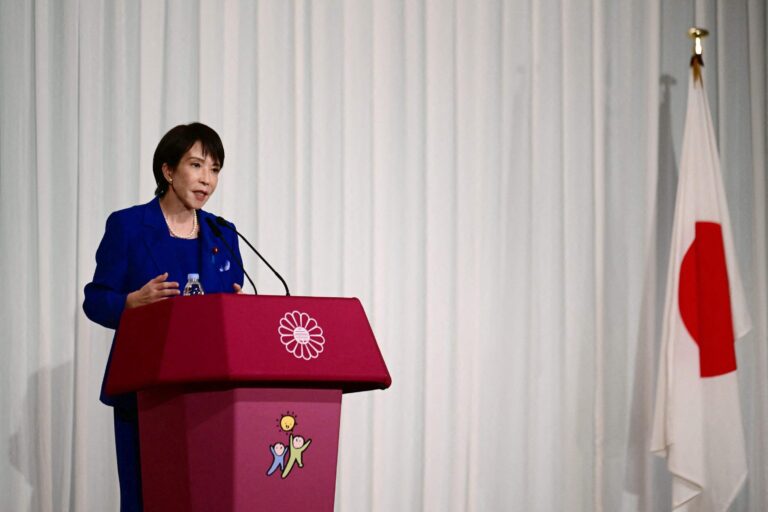In a surprising political development, Sanae Takaichi’s victory in the race to become Japan’s next leader has injected fresh uncertainty into the Bank of Japan’s (BOJ) monetary policy trajectory. While her win may postpone upcoming interest rate increases, analysts widely agree it is unlikely to derail the central bank’s broader strategy to normalize policy after years of ultra-loose stimulus. As markets digest the implications, investors and policymakers are closely watching how Takaichi’s leadership could influence the timing and pace of the BOJ’s rate hikes amid ongoing economic challenges.
Takaichi Victory Signals Potential Shift in Japan’s Monetary Policy Pace
Following Takaichi’s recent victory, market participants are closely assessing its implications for the Bank of Japan’s (BOJ) monetary trajectory. While her win suggests a potential recalibration towards a more cautious approach, economists widely agree that significant policy changes, such as drastic rate hikes, remain unlikely in the short term. Her stance reflects an intent to carefully balance domestic economic stability with growing inflationary pressures, signaling a measured pace rather than an abrupt policy shift.
Investors and analysts highlight several key factors that may influence the BOJ’s decision-making moving forward:
- Inflation trends: Moderate but persistent inflation requires watchful patience.
- Economic growth: Slower GDP expansion necessitates tempered monetary tightening.
- Global market impact: External volatility underscores the benefits of gradual adjustment.
| Factor | Impact on BOJ Policy Pace |
|---|---|
| Domestic Inflation | Encourages gradual rate hikes |
| Economic Growth | Calls for cautious tightening |
| Currency Stability | Supports policy continuity |
Implications for Bank of Japan Rate Hikes Amid Political Uncertainty
The unexpected victory of Takaichi as Japan’s new leader introduces a layer of political complexity that may influence the Bank of Japan’s (BOJ) monetary policy trajectory. While her leadership is unlikely to halt the central bank’s commitment to raising interest rates, it does raise questions about potential delays. Market observers are closely watching for any shifts in communication strategies or policy adjustments aimed at balancing growth concerns with inflation control amid a cautious political environment.
Key factors under review include:
- Policy continuity: The BOJ’s pledged timeline may face subtle modifications to allow new government priorities to settle.
- Inflation data volatility: Political uncertainty often translates into market unpredictability, which could postpone aggressive rate hikes.
- Public sentiment: The government’s ability to manage voter confidence might shape the central bank’s flexibility in tightening monetary policy.
| Factor | Potential Impact |
|---|---|
| Political Leadership Change | Possible delay in rate hike schedule |
| Inflation Trends | Influences BOJ’s urgency |
| Market Response | Elevated volatility |
Market Strategies to Navigate Possible Delays in BOJ Tightening Measures
Investors seeking to navigate the uncertainty surrounding the Bank of Japan’s (BOJ) tightening timeline should consider a diversified approach to mitigate risks associated with potential delays. Focusing on assets less sensitive to immediate rate hikes, such as dividend-paying stocks and inflation-protected securities, can help preserve returns in volatile conditions. Furthermore, sectors like technology and export-driven industries are expected to benefit from a weaker yen, presenting strategic opportunities despite the BOJ’s cautious pace.
Key market strategies include:
- Implementing hedging tactics: Use currency hedges to manage yen fluctuations that may arise from postponements in tightening.
- Adjusting bond portfolio duration: Shortening duration can reduce exposure to interest rate risk amid a prolonged low-rate environment.
- Capitalizing on cross-border investments: Allocate capital to global markets less impacted by Japan’s monetary policy lag.
| Strategy | Rationale | Risk Mitigation |
|---|---|---|
| Dividend Stocks | Stable income source during volatility | Lower downside risk |
| Currency Hedging | Buffers against yen depreciation | Limits currency losses |
| Short-Term Bonds | Reduced sensitivity to rates | Protects capital value |
Concluding Remarks
As Japan navigates the political ramifications of Takaichi’s victory, market watchers will be closely monitoring the Bank of Japan’s next moves. While the leadership shift may introduce some short-term uncertainty, analysts largely agree that it is unlikely to fundamentally alter the BOJ’s trajectory toward tightening monetary policy. Investors and policymakers alike will be watching for signals in upcoming statements and economic data to gauge the pace and scope of future rate hikes.




